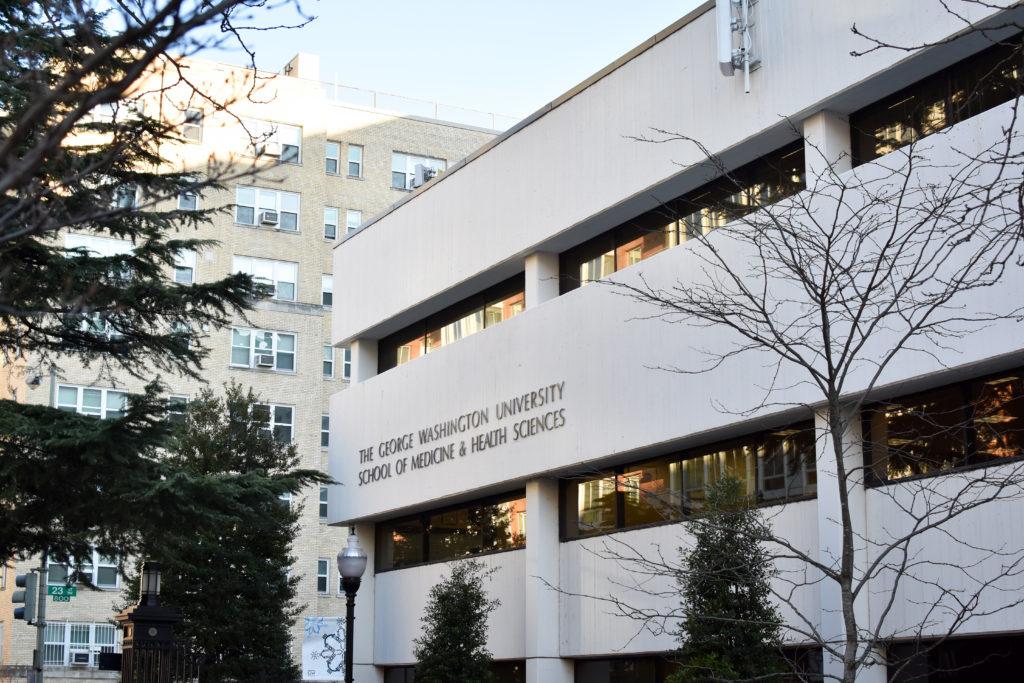The medical school has been short-staffed in its fundraising office over the past year.
The development and fundraising department of the School of Medicine and Health Sciences is looking to fill five open positions, most of which have been vacant for more than a year. Fundraising experts said having several vacant posts open for an extended period of time could hurt the medical school’s efforts to raise money for a host of priorities, including financial aid and research.
The open positions in the medical school include the executive director of development for the medical center, the director of institutional giving, the associate director of development and the director of development at the GW Cancer Center. The director of development position has been left open the longest and has been unfilled for almost two years.
Lisa Anderson, a spokeswoman for the medical school, said the school regularly evaluates the resources needed to achieve its development goals. She said the open positions are a part of the overall fundraising strategy.
“The current development and alumni staff in the school are diligently working to engage more constituents and raise additional funds to support students, faculty and research,” she said in an email.
She declined to say what challenges the medical school faced filling the positions or when the positions are expected to be filled. She also declined to say how the vacant positions affect the school’s fundraising efforts.
Jeff Nearhoof, the senior vice president of fundraising consultant Grenzebach Glier and Associates, said fundraising staff are essential in helping the school attract top candidates and donors for research projects.
Nearhoof said fundraising offices typically have financial priorities, like scholarships or disease research funding, and some of those primary issues can be sacrificed if the office lacks the staff to head them.
“There might be a short-term lack of funding for an initiative and a shortfall in a specific priority area,” Nearhoof said.
Christopher Pipkins, the assistant vice president of advancement operations at American University, said hiring development officers for medical schools is often more difficult than the process for other institutions. Fundraisers in the medical school must know how to communicate with scientists, doctors and patients – more skills than most development officers need to have.
He added that medical school fundraisers are often more important than other offices because they help attract money to fund research projects. As medical research funding from the federal government declines nationally, Pipkins said development officers help fill in that gap.
“A lot of federal money is not going to research,” Pipkins said. “That means the government isn’t going to give as much. It is critical that medical schools keep funding the research that will change our standard of living.”
But the medical school’s grants from the National Institutes of Health totaled more than $20 million in 2018, up from the more than $16 million it received four years prior.
Christian Conant, the chief of staff for the Office of Advancement at Georgetown University, said fundraising officers are in high demand, so it is common for positions to be left open for roughly six to nine months, but offices begin to encounter larger fundraising issues when positions are left unfilled for more than a year.
“They help raise the profile of the institution,” Conant said. “There is a loss of fundraising revenue. That poses a risk, especially if there are ambitions to build facilities.”
The medical school set a fundraising goal of $225 million during the University’s largest-ever fundraising campaign that finished in 2017. Officials would not say if the medical school – or any schools – reached their targets.
Carrie Fogel, a development officer in the Medical and Health Sciences Foundation at the University of Pittsburgh, said it is challenging to find and fill a position in a medical school’s development office because medicine is “technical,” and fundraisers must understand the complex topics that faculty and staff research, study and teach.
“One needs to really spend time with the researchers and clinician-scientists doing the work to find out what their research is all about and what types of individual donors or organizations, like foundations, may be interested in learning more about the work being done,” Fogel said in an email.





